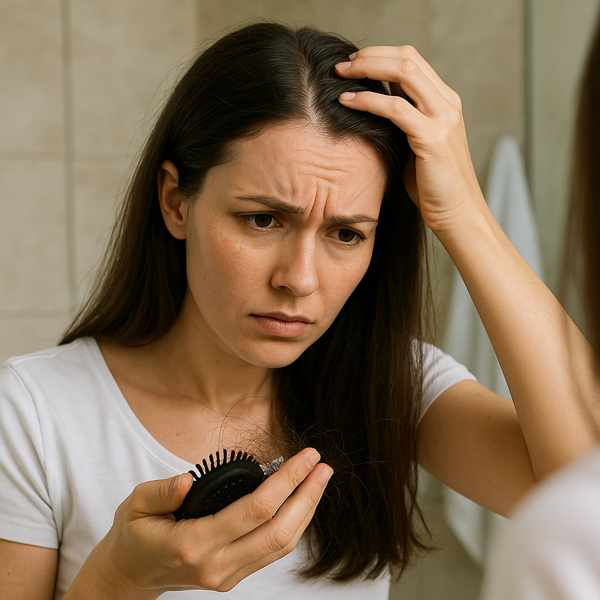Hair Shedding and Weight Loss: Causes and Solutions
Hair Shedding and Weight Loss: Causes and Solutions
Blog Article

So what’s the connection between weight loss and hair loss, and how can you manage both successfully?
Understanding why this happens and how to protect your hair can help you reach your goals without compromising your confidence.
What Causes Hair Loss After Losing Weight?
Hair loss during weight loss is usually a result of physical stress or nutritional deficiencies.
Common causes include:
- Lack of protein, iron, or vitamins
- Body enters stress mode
- Shifts in metabolism or thyroid function
- The body reacts to sudden changes
Temporary Hair Loss Explained
Most hair loss related to weight loss is called telogen effluvium.
Key facts:
- Usually occurs 2–3 months after weight loss begins
- Hair falls out evenly across the scalp
- Hair usually grows back with time
What Your Hair Needs to Thrive
If you're trying to lose weight, be sure not to miss these nutrients:
- Protein
- Carries oxygen to hair follicles
- Biotin and other B vitamins
- Supports hair tissue repair and growth
- Vitamin D
Skipping meals or using crash diets can easily lead to deficiencies that trigger read more hair loss.
Staying Healthy Without Sacrificing Hair
You don’t have to choose between losing weight and keeping your hair.
Tips include:
- Aim for 1–2 pounds per week
- Eat a nutrient-rich diet
- Consider a multivitamin
- Both affect hormones and hair health
- Stay hydrated
How to Manage Hair Loss During Your Journey
If you notice excessive shedding:
- Don’t panic
- Check for deficiencies or thyroid issues
- Replenish what’s missing
- Try gentle hair care
- Be patient
Getting Expert Help for Hair Loss
If hair loss continues beyond 6 months or worsens significantly, it's a good idea to consult a healthcare provider.
- A common cause of both weight and hair changes
- Can trigger more permanent forms of hair loss
- Need professional correction
The Truth About Weight Loss and Hair Loss
Weight loss and hair loss can be connected, but they don’t have to be permanent partners.
Prioritize nourishment, patience, and consistency, and your body will thank you — from head to toe. Report this page